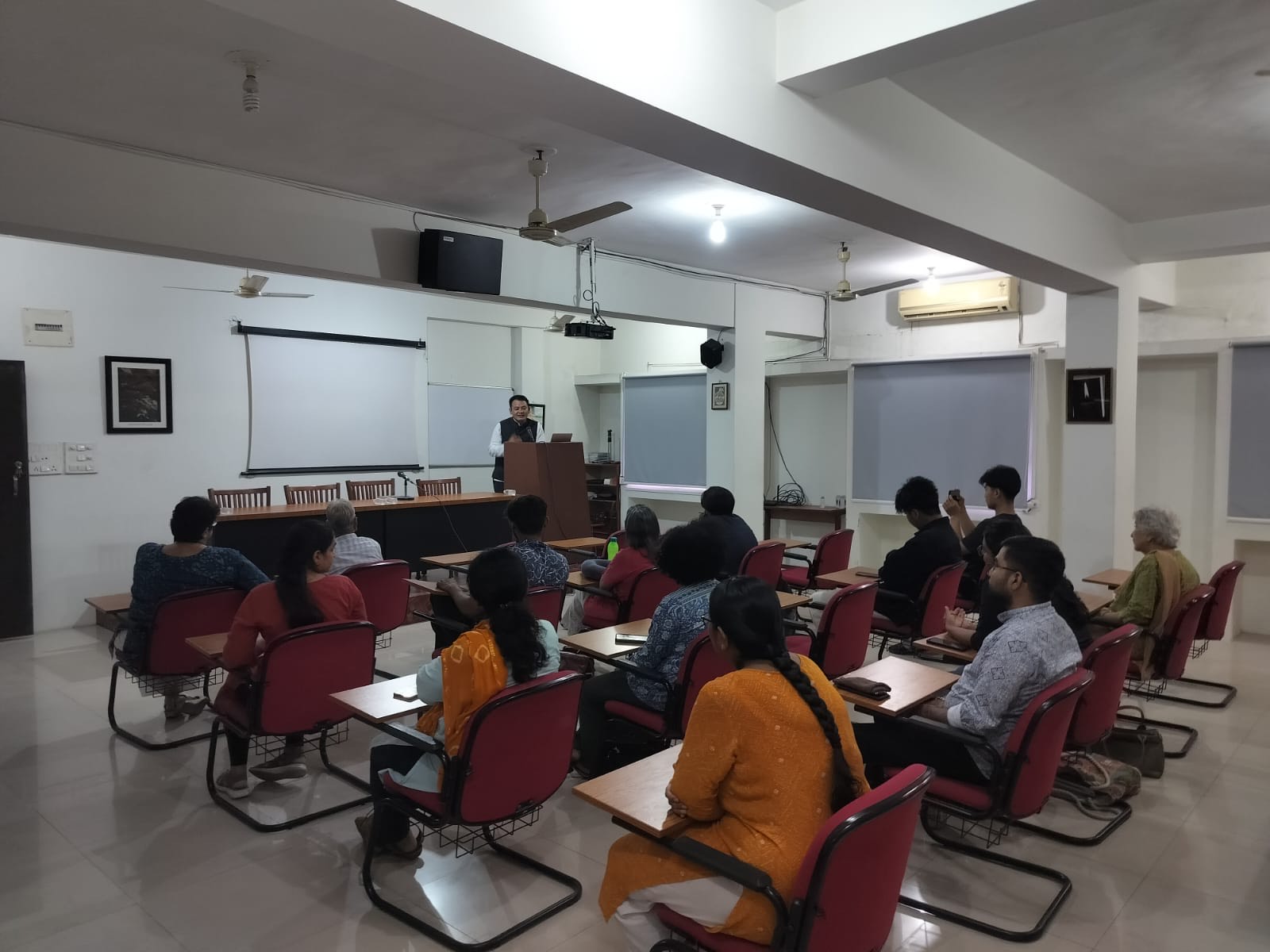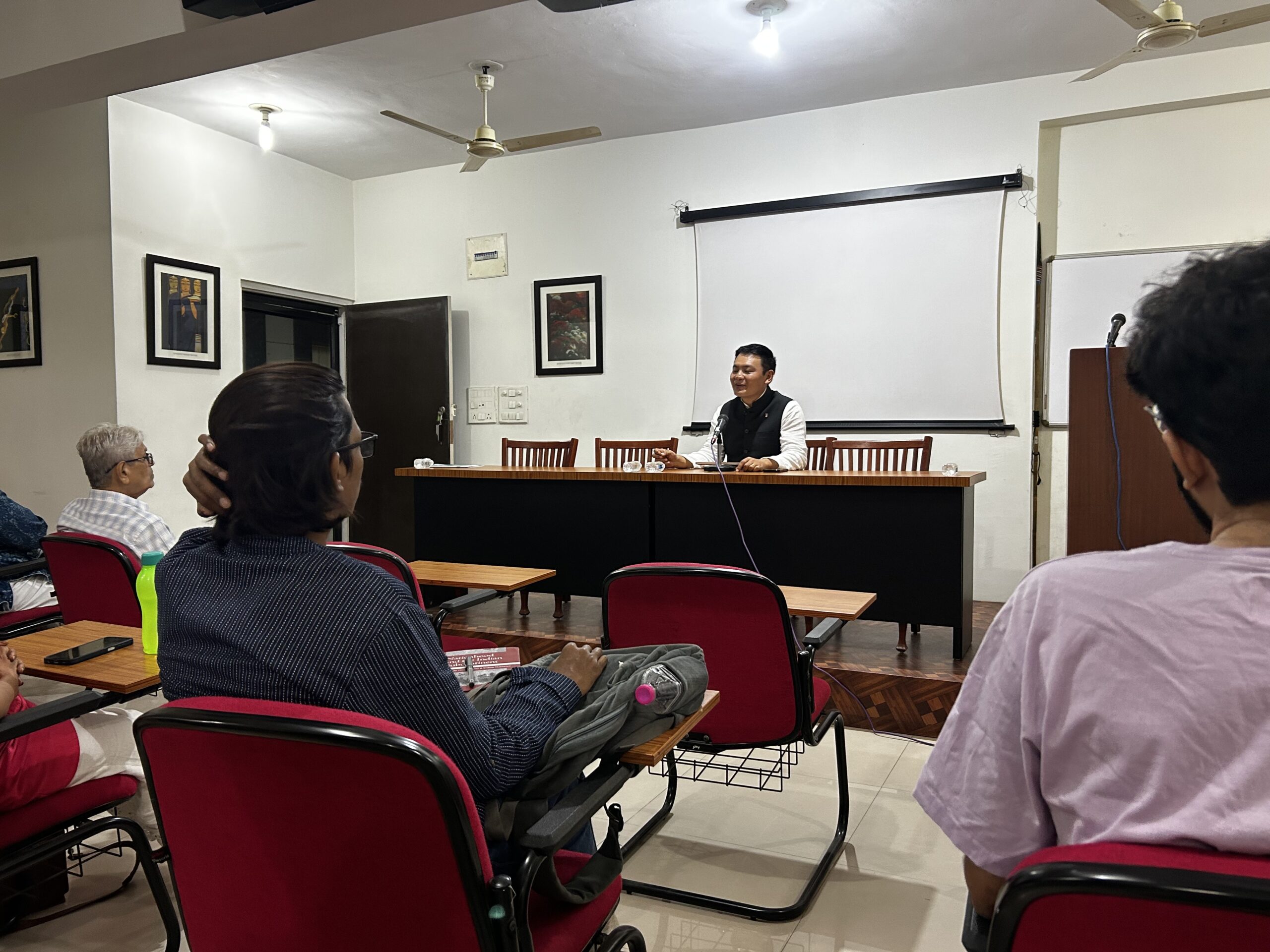July 8, 2025: On the occasion of the Dalai Lama’s 90th birthday, the 108 Peace Institute in collaboration with the Forum on Contemporary Theory based in Vadodara organized a public talk on ‘Future of Tibet: Political and Religious Perspectives’.
The talk featured Dr. Lajwanti Chatani, Professor, Department of Political Science, the MSU Baroda, and Yeshi Dawa, Senior Researcher, 108 Peace Institute.
Prof. Lajwanti Chatani, opened her remarks with focus on the relevance of Tibet’s issue in today’s world and the significant role played by the Dalai Lama in the Tibetan freedom movement. She suggested that Tibetans must be resilient in the post Dalai Lama era.
Mr Yeshi Dawa explored the Dalai Lama’s dual role as both spiritual and political leader of Tibetans, while also drawing attention to alarming contemporary developments, including China’s renaming of Tibet as “Xizang” and the expansion of colonial-style boarding schools targeting Tibetan youth. Mr Dawa delved into the motivations behind China’s campaign to replace the name “Tibet” with “Xizang,” arguing that the move is part of a broader effort to erase Tibetan identity from international consciousness. He pointed out that the name “Tibet” had already gained global recognition long before the founding of the People’s Republic of China, referencing examples such as the appearance of the Tibetan national flag in a 1934 National Geographic publication, and the iconic Tintin in Tibet comic. Since the 1970s, the global visibility of Tibet has grown, largely due to the Dalai Lama’s participation in international forums. He stressed that China’s rebranding efforts aim to delegitimize Tibet’s distinct identity on the world stage.
Mr Dawa also raised concerns over China’s introduction of colonial-style boarding schools in Tibet, which are now mandatory for Tibetan children. These institutions are designed to isolate students from their native language, cultural traditions, and spiritual values. Mr Dawa emphasized that this systematic assimilation policy represents an intentional strategy to dismantle the foundations of Tibetan identity and suppress future generations’ connection to their heritage.
Around 25 participants including professors, researchers and student joined the event. The talk ended with a presentation of a copy of the book ‘Voice for the Voiceless’ to the Forum on Contemporary Theory.

